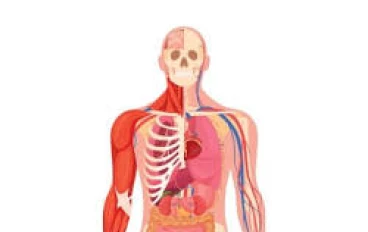
Why Diets Fail Even When You Stick to Them
Have you ever followed a strict plan, tracked every meal, and still asked yourself, "Why am I not losing weight?"

This article explains why diets fail even when people stick to them and what to do about it. Research summarized in public health and nutrition literature shows high relapse rates: many dieters regain lost weight within a year. Some reviews historically quoted failure rates as high as 95%, a figure widely debated by experts like Yoni Freedhoff and others in obesity medicine.
Diet failure is rarely a simple matter of willpower. Physicians such as Ulysses Wu, MD, and registered dietitians like Theresa Dvorak point to predictable biological and behavioral responses: metabolic adaptation, hormonal shifts that increase hunger, deprivation thinking, and poorly designed plans that are hard to sustain.
We will break this down into four clear areas: physiology and metabolism, the psychology of eating, diet design problems, and practical barriers like sleep and stress. Then we will offer evidence-based, sustainable weight loss tips—such as habit-focused changes, intuitive eating principles, meal planning, and when to seek professional support.
Key Takeaways
- Many diets show high long-term relapse; weight regain is common.
- Diet failure often stems from biology and behavior, not lack of willpower.
- Metabolic and hormonal changes can make weight loss harder over time.
- Unsustainable rules and hidden calories undermine progress.
- Sustainable weight loss tips include habit change, meal planning, and professional guidance.
- Watch the companion videos for deeper guidance: https://www.youtube.com/channel/UCCgA72VEaCeISyW88zLbNUA.
Why sticking to strict diets often backfires: physiology and metabolic adaptation
Strict diets can feel successful at first. Weight drops during early weeks when calorie counting is tight and meals are predictable. The body responds to sustained deficits by shifting energy use and hormone signals. These biological changes make long-term control harder than most people expect.
https://www.youtube.com/watch?v=g9QGQJ1ypp0
How calorie restriction slows metabolism
Prolonged calorie restriction triggers metabolic adaptation. Resting energy expenditure falls as the body conserves fuel, so metabolism slows when dieting and burns fewer calories at rest. That adaptive thermogenesis acts like an internal brake on weight loss and raises the odds of regaining weight when normal eating resumes.
Reduced intake also nudges the body to preserve fat stores. Evolution favors survival, so energy-saving changes in muscle and organ metabolism help explain why strict low-calorie approaches stall. Simple calorie counting can miss this shifting baseline of what the body needs each day.
Hormonal changes that increase hunger and cravings
Diet-induced weight loss alters hunger and satiety hormones. Levels of leptin and weight loss are closely linked; as fat mass drops, leptin falls and appetite rises. At the same time ghrelin often increases, producing stronger hunger signals.
Those hormonal shifts intensify cravings and make restrictive rules feel unsustainable. When people label foods off-limits, psychological pressure compounds biological urges and raises the risk of overeating episodes.
Insulin resistance and its role in diet failure
Insulin resistance and diet responses vary widely between individuals. Impaired insulin signaling changes how the body stores and uses glucose and fat. High-carb patterns with repeated sugar spikes can worsen insulin resistance for some people.
A low carb diet may improve blood sugar and appetite control in certain cases, yet it is not a universal fix. Personalized plans that account for metabolic health often outperform one-size-fits-all rules when insulin sensitivity is part of the problem.
Psychology of dieting: deprivation, willpower limits, and eating behavior
Dieting is not just calories and exercise. Mental patterns shape what people eat and how long change lasts. This section looks at common psychological pitfalls that explain why diets fail psychologically and offers clearer paths to steady habits.

When favorite foods are banned outright, they gain power. Labeling an item as forbidden promotes an all-or-nothing mindset that raises the odds of overeating when restraint slips.
Research and clinicians such as those at the Institute for the Psychology of Eating note that strict rules can trigger binge episodes. Theresa Dvorak suggests gentle swaps and food chaining to pair new items with familiar ones to cut down on feelings of deprivation.
Mental fatigue and decision-making
Constant choice-making drains cognitive energy. Tracking calories, weighing portions, and policing each meal wears down willpower over days and weeks.
Limited willpower limits how long a person can sustain micro-decisions. Planning meals and using simple rules reduce real-time decisions and protect mental resources. Practical tips like batch cooking and set breakfasts ease the daily load.
Weight stigma, stress, and emotional eating
Social stigma and internal bias create stress that often shows up as emotional eating. Studies summarized by Michigan Health and Wellness link stigma to worse mental health and coping through food.
Stress hormones such as cortisol can shift appetite toward calorie-dense foods and make burning calories less efficient. Treating eating behavior as part of whole-person wellness, reducing weight stigma, and building self-compassion support mindful eating and lower the chance of relapse.
| Psychological Factor | Typical Effect | Practical Strategy |
|---|---|---|
| Deprivation thinking | Increased cravings and binge risk | Food chaining and gradual swaps |
| Willpower limits | Decision fatigue; lapses over time | Meal planning and simple rules |
| Weight stigma | Stress, shame, emotional eating | Self-compassion and supportive environments |
| Chronic stress | Hormonal shifts; appetite for dense foods | Stress reduction practices and sleep hygiene |
| Rigid rules | Perfectionism; program abandonment | Built-in flexibility; planned enjoyment |
Diet design problems: unsustainability, extreme rules, and hidden calories
Many weight-loss attempts stumble before long because plans demand dramatic change overnight. Quick shifts can yield fast results, yet people often return to prior habits. Michigan Health and Wellness and clinicians stress that lasting progress stems from steady habit change, not a string of one-off short programs.

Extreme restrictions break down around social meals, work nights, and family dinners. Theresa Dvorak recommends starting small and experimenting until a routine fits daily life. Without that fit, short-term diets fail when pressure mounts and old patterns resurface.
Read labels carefully, since many packaged options marketed as healthy hide added sugars or refined starches. Low-fat or “light” claims can mask caloric density. Mindful portion control and favoring whole foods help reduce the impact of hidden calories in diet foods.
Practical systems make a big difference. Simple meal planning and sensible meal prep cut the friction of cooking after a long day. Keep healthy snacks on hand, plan restaurant choices in advance, and avoid shopping hungry to limit impulse buys.
Not every diet plan matches every life season. Work hours, family needs, and social calendars change. Build flexibility into plans so the system adapts when routines shift, rather than forcing strict rules that collapse under real-world demands.
Use sustainable weight loss tips that emphasize small, repeatable actions. Clean eating principles can guide choices, yet they must fit time and budget constraints. Think of the plan as a framework for steady gains, not a temporary reset.
| Problem | Why it fails | Practical fix |
|---|---|---|
| Extreme rules | Unrealistic at social events and during busy weeks | Adopt one small change at a time to build habits |
| Short-term focus | Weight often returns after the plan ends | Transition to long-term behaviors and gradual goals |
| Misleading “diet” foods | Added sugars and refined carbs raise calories unnoticed | Prioritize whole foods and read nutrition labels |
| Mismatch with routine | Excessive prep time or separate meals are unsustainable | Use meal planning and batch cooking for real-life use |
| Lack of flexibility | Small life changes derail rigid plans | Design adaptable rules and swap options for busy days |
Practical barriers and biological differences: sleep, stress, and individual variability
Small daily factors shape how any diet works. Sleep loss, chronic stress, and each person's biology change hunger, energy use, and food choices. Treating these influences as part of a plan helps explain why two people on the same program can have different results.

Impact of sleep deprivation on weight loss
Poor sleep disrupts hormones that control appetite. Lower leptin and higher ghrelin make food seem more rewarding and raise cravings for calorie-dense items. Impaired glucose handling and lower activity levels follow, undermining efforts to lose weight. Improving sleep consistency often boosts appetite regulation and supports better outcomes.
Chronic stress and metabolic effects
Persistent stress raises cortisol, which can slow energy use and favor fat storage, especially around the abdomen. Stress increases emotional eating and drives choices toward comfort foods. Managing stress with exercise, mindfulness, sleep hygiene, and social support reduces the impact of stress and weight gain on daily eating habits.
Individual differences in metabolism and biology
People differ in baseline metabolic rate, insulin sensitivity, hormone patterns, gut microbiome, and genetics. These individual differences in metabolism change how one responds to the same calorie target or macro split. One-size-fits-all diets ignore these factors and often fail because they do not match biology or life context.
Practical steps include tracking how you feel, adjusting intake when progress stalls, and consulting a registered dietitian or clinician for tailored plans. Treat changes as experiments rather than proof of personal failure when hormonal causes of diet failure appear. That approach reduces blame and leads to smarter, sustainable adjustments.
Conclusion
Diet failure usually stems from biology, psychology, and daily life colliding. Metabolic adaptation — a slower metabolism and shifts in hormones like leptin and ghrelin — combines with deprivation thinking and limited willpower to make strict plans hard to sustain. Add hidden calories, rigid rules, poor meal planning, sleep loss, and stress, and even well-intentioned efforts can stall.
Long-term diet success depends on realistic, personalized steps. Prioritize sustainable weight loss tips such as small, incremental habit changes, consistent meal patterns, and practical meal prepping to lower impulsive choices. Focus on healthy eating with whole foods, higher protein, fiber, and healthy fats to boost satiety and adherence.
Use mindful eating and intuitive approaches to re-learn hunger and fullness signals, and allow occasional treats to avoid deprivation-driven binges. Treat sleep and stress management as core parts of nutrition and metabolic health, not add-ons. When needed, seek support from a registered dietitian or physician to tailor strategies to your biology and routine.
Diet outcomes are not solely a moral issue but the result of predictable forces. Aim for steady, manageable changes that fit daily life to improve the odds of long-term diet success. For more practical guidance and examples of meal planning and mindful eating, consider watching related video content and consulting qualified professionals for personalized support.
For more tips on healthy eating and sustainable weight loss, subscribe to my YouTube channel: MedHint - YouTube


































